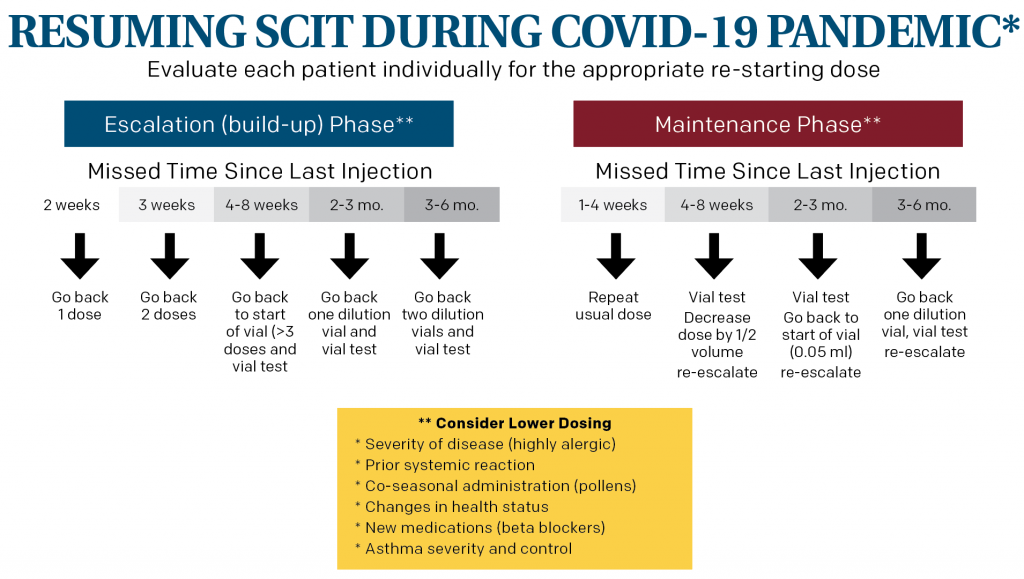Protecting Yourself
As restrictions lift in different parts of the country, while incidence and exposure continue to be monitored, consideration of which protocols will be implemented for patient and staff safety are vital, and use of personal protective equipment (PPE) is of paramount importance. When resuming SCIT injections, providers should wear gloves, gown, mask, hair covering, and eye protection. The adequacy and specific type of PPE to be used during SCIT administration depends upon hospital and government recommendations as restrictions are lifted.
Explore This Issue
June 2020
* This example is based on expert opinion as there is a lack of scientific data. Treatment of individual patients will require analysis of their medical condition and individual dosing for immunotherapy.
COVID-19 is transmitted through the aerosolization of viral particles, a fact that’s particularly concerning in allergy management. Use of pulmonary function testing, peak flow testing (PFT), and nebulized medications can promote the aerosolization of viral particles. Whenever possible, these procedures should be deferred or replaced with alternatives—for example, inhaled corticosteroids can be delivered by metered-dose inhalers rather than nebulizer, chest auscultation can be performed rather than PFT, and PFT may even be deferred until COVID-19 restrictions are eased. Frequent surface disinfection with 70% ethanol should be part of an allergy practice’s protocol.
A practice must also consider how it will manage patients and maintain social distancing as it reopens. Limiting additional family members, reducing shared materials such as magazines, pens, or check-in kiosks, and wider seat spacing in waiting areas are some issues to consider.
Patients and staff should be regularly monitored for COVID-19 infection symptoms. Prescreening from the time of booking until the time of entry into the office should be considered. Screening questions should ask about exposure to COIVD-19, cough, shortness of breath, fever, and anosmia. Temperature monitoring can also be implemented prior to entry into the clinic. Patients displaying COVID-19 infection signs and symptoms should be referred to primary care for appropriate testing, when possible, rather than receiving their SCIT injections. All these precautions and more must be a significant part of the decision to reopen.
Dr. Alpen Patel is the 2019-2020 president, Dr. Michael Platt is the treasurer, and Dr. Doug Dawson is the socioeconomic chair of the AAOA.